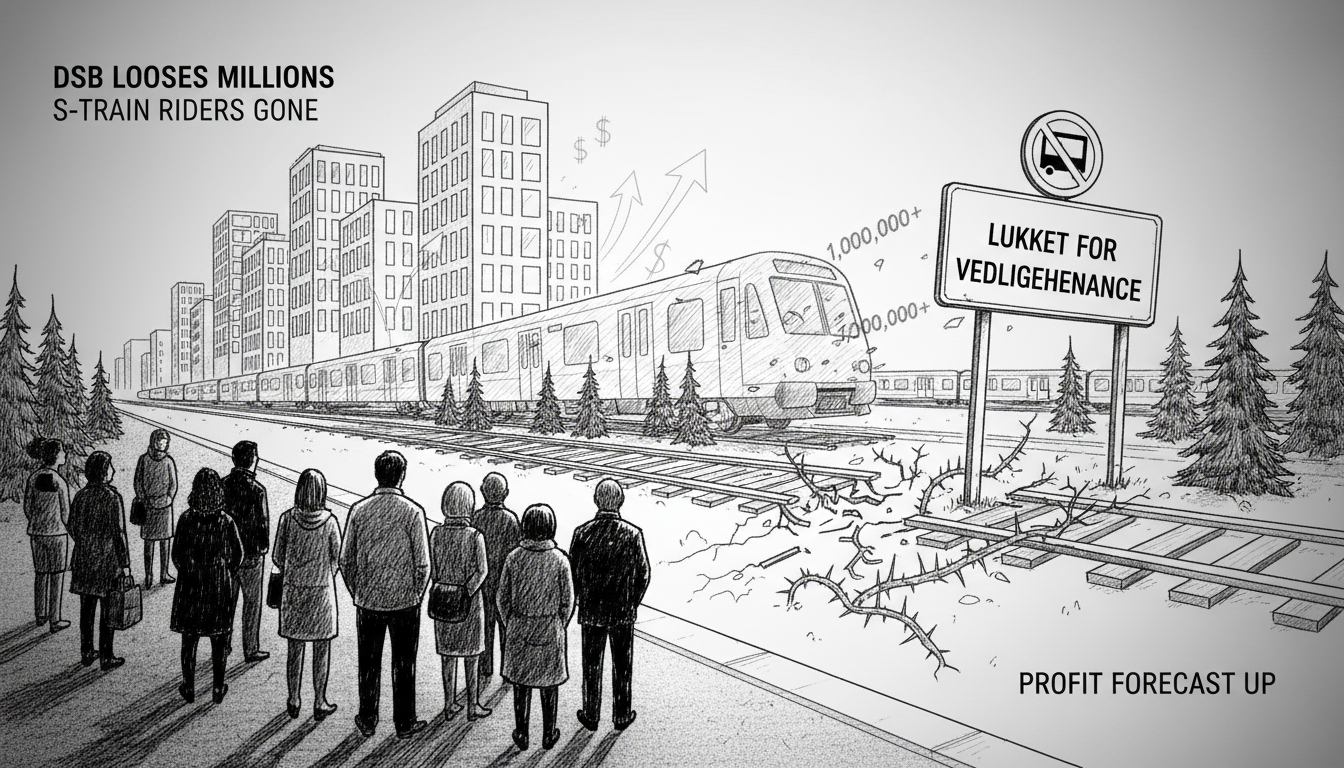Danish State Railways faces a significant drop in S-train passengers during the third quarter as extensive track maintenance disrupts service on the Hillerød line. The national rail operator lost over one million S-train journeys in the first nine months of the year, with total S-train trips falling to 81.8 million compared to 83.1 million during the same period last year.
The decline centers primarily around the third quarter and connects directly to major track work between Svanemøllen Station and Hillerød Station. This crucial commuter route serves thousands of daily passengers traveling between northern Zealand communities and Copenhagen.
DSB CEO Flemming Jensen acknowledged the challenge in the company's quarterly report. He stated that the many lost customers on the Hillerød line will not return automatically. Jensen emphasized that bringing passengers back to S-trains after the track work concludes will require substantial and targeted effort.
The maintenance project began on May 2nd with an initial completion target of August. However, the timeline extended to November 23rd, creating additional disruption for commuters. This extension compounded the passenger losses during the critical autumn travel period.
Despite the S-train setbacks, DSB's overall passenger revenue grew approximately three percent to nearly 4.6 billion Danish kroner in the first nine months. This growth stems primarily from increased travel on long-distance and regional train services.
The company's pre-tax profit surged 16.5 percent to 630 million kroner during the same period. DSB now upgrades its full-year expectations for the second time, projecting pre-tax profits between 600 and 700 million kroner. Previous forecasts anticipated only 300 to 400 million kroner in pre-tax profits.
Jensen highlighted DSB's strong position in the quarterly report. He noted higher passenger revenue, continued customer growth in long-distance and regional trains, and over one million users of the company's mobile app. The digital transformation shows clear results with 72 percent of Orange ticket sales occurring through the DSB app. Customers also typically purchase seat reservations through the application.
This situation reveals the delicate balance transport authorities face between necessary infrastructure maintenance and service reliability. The Hillerød line disruptions demonstrate how even essential improvements can drive passengers away, potentially creating long-term ridership challenges. The coming months will test whether DSB's recovery efforts can successfully win back commuters who found alternative transportation during the extended maintenance period.

